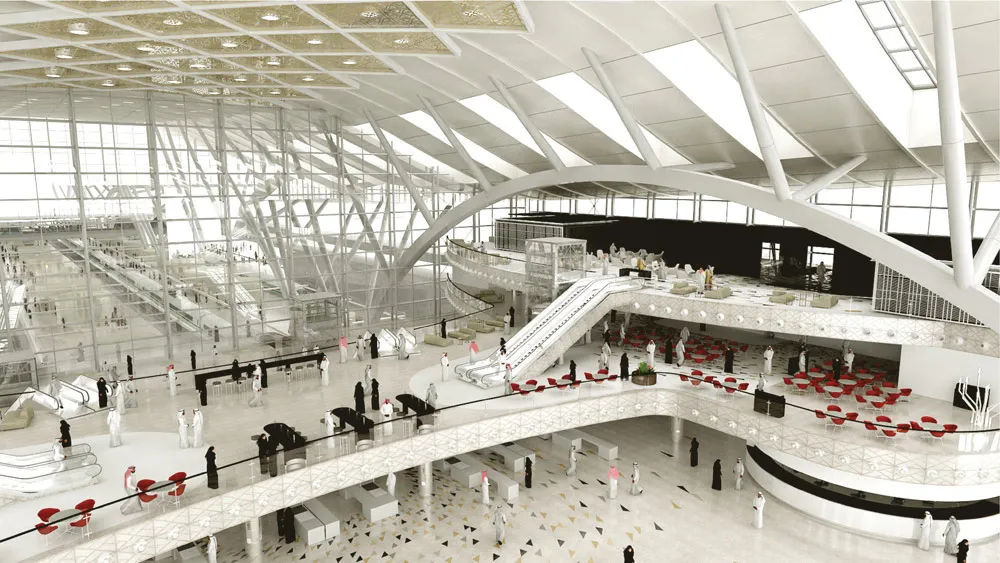IRF delivers advanced traffic management training in Riyadh
For the second in a series of ITS courses specially tailored for the needs of fast-transitioning economies, the IRF assembled a multi-national cast of renowned instructors who delivered five modules focusing on major mobility applications. Held from October 19th–22nd, 2014, the course was attended by over 170 transportation and engineering professionals from a wide array of public agencies, including the municipalities of Riyadh, Jeddah, Dammam, t
December 19, 2014
Read time: 3 mins
RSSIRF delivers advanced traffic management training in Riyadh
For the second in a series of ITS courses specially tailored for the needs of fast-transitioning economies, the3918 IRF Washington assembled a multinational cast of renowned instructors who delivered five modules focusing on major mobility applications. Held from October 19–22, 2014, the course was attended by over 170 transportation and engineering professionals from a wide array of public agencies, including the municipalities of Riyadh, Jeddah, Dammam, the Ministries Transport and Interior and Riyadh Traffic Police, among others. On the private sector side, the most important contractors and consulting firms were represented at the course.
Like other agencies present, the Municipality of Riyadh has undertaken a number of infrastructure, congestion mitigation and road safety projects designed to enhance the quality of life of residents. Many of these projects have significant intelligent transport systems (ITS) components that improve the benefits obtained from a given investment. However, they also raise questions about planning, procuring and embedding ITS applications within large-scale multimodal transportation projects.
Delegates were introduced to the systems engineering process for decision-makers, an invaluable tool to ensure projects are completed on time, on budget and in the most efficient manner. According to Dr Jaffe, chairman of IRF’s Subcommittee on ITS Education and Training, “incorporating Systems Engineering to the management of ITS projects reduces the risks of cost and schedule overruns, and not meeting the needs originally intended”. Systems Engineering accomplishes this by using verification and validation methods to detect defects shortly after they are created, when the defects are inexpensive to fix.
Selecting the right procurement method is also a key factor in determining the success of the project. Good ITS procurement practices now require a multidisciplinary group of skilled procurement specialists working together, as a team, with experienced ITS professionals and expert advisors. More innovation and flexibility is required, as is more emphasis on functionality, performance, and value-for-money. Project risks should be allocated to the party that can best manage those risks.
Applications discussed also extended to public transport, with a real life case study of the ongoing Riyadh Metro project. The advent of metro systems in Riyadh and other cities in Saudi Arabia is a real game-changer which, combined with highway and urban-level investments, has the potential to propel the region as a world leader in providing integrated mobility using ITS technologies within the next five years.
In his introductory address, IRF chairman and Riyadh mayor, Eng Abdullah A Al-Mogbel noted, “ITS is a vast and multidisciplinary subject – I think of it as a collection of technology applications for various different problems, whether traffic congestion, freight costs, public transport access, safety for drivers and pedestrians, and many more. What this means is that ITS affects the entire range of transportation modes and options, at all levels.”
For the second in a series of ITS courses specially tailored for the needs of fast-transitioning economies, the
Like other agencies present, the Municipality of Riyadh has undertaken a number of infrastructure, congestion mitigation and road safety projects designed to enhance the quality of life of residents. Many of these projects have significant intelligent transport systems (ITS) components that improve the benefits obtained from a given investment. However, they also raise questions about planning, procuring and embedding ITS applications within large-scale multimodal transportation projects.
Delegates were introduced to the systems engineering process for decision-makers, an invaluable tool to ensure projects are completed on time, on budget and in the most efficient manner. According to Dr Jaffe, chairman of IRF’s Subcommittee on ITS Education and Training, “incorporating Systems Engineering to the management of ITS projects reduces the risks of cost and schedule overruns, and not meeting the needs originally intended”. Systems Engineering accomplishes this by using verification and validation methods to detect defects shortly after they are created, when the defects are inexpensive to fix.
Selecting the right procurement method is also a key factor in determining the success of the project. Good ITS procurement practices now require a multidisciplinary group of skilled procurement specialists working together, as a team, with experienced ITS professionals and expert advisors. More innovation and flexibility is required, as is more emphasis on functionality, performance, and value-for-money. Project risks should be allocated to the party that can best manage those risks.
Applications discussed also extended to public transport, with a real life case study of the ongoing Riyadh Metro project. The advent of metro systems in Riyadh and other cities in Saudi Arabia is a real game-changer which, combined with highway and urban-level investments, has the potential to propel the region as a world leader in providing integrated mobility using ITS technologies within the next five years.
In his introductory address, IRF chairman and Riyadh mayor, Eng Abdullah A Al-Mogbel noted, “ITS is a vast and multidisciplinary subject – I think of it as a collection of technology applications for various different problems, whether traffic congestion, freight costs, public transport access, safety for drivers and pedestrians, and many more. What this means is that ITS affects the entire range of transportation modes and options, at all levels.”









